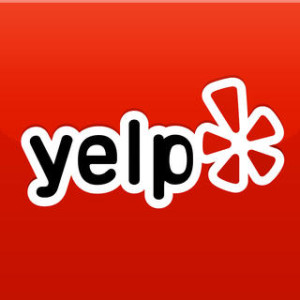By Rose O. Sherman, EdD, RN, FAAN
 It was announced this week by the CEO of Yelp that the site is partnering with ProPublica, a non profit news organization that compiles CMS data for 4600 hospitals, 15,000 nursing homes and 6300 dialysis centers. The goal is to provide consumers with easy to access information about items like ER wait times, physician communication and hospital noise levels. Additionally, consumers will be able to add their own comments. In a review I looked at, one hospital in our South Florida area was noted by users to have terrible parking access. To illustrate the point, pictures of the parking garage were included just as pictures of food would be in a restaurant review. The following are a sampling of comments written by consumers about hospitals reviewed on the site:
It was announced this week by the CEO of Yelp that the site is partnering with ProPublica, a non profit news organization that compiles CMS data for 4600 hospitals, 15,000 nursing homes and 6300 dialysis centers. The goal is to provide consumers with easy to access information about items like ER wait times, physician communication and hospital noise levels. Additionally, consumers will be able to add their own comments. In a review I looked at, one hospital in our South Florida area was noted by users to have terrible parking access. To illustrate the point, pictures of the parking garage were included just as pictures of food would be in a restaurant review. The following are a sampling of comments written by consumers about hospitals reviewed on the site:
“Today is checkout day. I cannot say enough nice things! From the care to the staff to the facilities and the volunteers it has been a great experience all the way! How many hospitals can you say that about? Thank you everyone for such good care!”
“I am absolutely speechless at the horrific service you guys offer in your emergency room. I took my husband in for an emergency and I will never again return here. All I could hear was the nurses complaining about their jobs. Talking about other patients.. “I would slap him if I could”. One nurse came into the room and didn’t even look at our faces the entire time she was talking.”
“After being admitted, My biggest complaint is the cleanliness of the hospital room. Or the lack of cleanliness I should say. I have a rogue cucumber under my bed that has been here before me. I haven’t mentioned it to anyone because I’m conducting a social experiment to see how long it takes for the cleaning staff, who has been in my room 3 times a day, to actually acknowledge it and pick it up.”
In his blog, the Yelp CEO wanted to consumers to know that Yelp has their back and were there to help them make better healthcare decisions. Like it or not, there is a rise in rateocracy and consumers will now be able to vent their frustrations about care on this widely read public site.
The Rise of Rateocracy
With the rise of the internet, consumers have now been empowered to rate products, endorse services and post complaints in forums that are widely viewed such as on Amazon, Tripadvisor, eBay, Yelp and Angie’s list. Job hunters and employees can read and rate their employers on sites such as Glassdoor.com. On Facebook, users can endorse a product or person by “liking” it and on LinkedIn, your skill in certain areas can be endorsed by others. These are ratings are real time and have led companies and their leaders to be very concerned about their online “reputation management”.
According to Moran and Carfi, these trends are just in their infancy stages. They see the trend toward Rateocracy as a game changer for both organizations and their leaders. At this point, they acknowledge that on many of these sites, there are not enough comments or ratings to be statistically robust. Over time with more users, this data could become much more representative and trusted.
Implications for Nurse Leaders
Most nurse leaders are probably not yet in the habit of checking Yelp to see what is being said in real time about your services but it is likely that you soon will be – especially leaders in high volume/high profile areas like the ER. It is humbling to read bad reviews but the key is to examine trends. As nurse leaders, this could force us to become much more transparent in our practices, better listeners and stronger communicators.
Moran, R. (2012) Rateocracy and Corporate Reputation. World Futurist. May-June 2012.
Mutchmore, S. (2015) How does your hospital rate on Yelp? Modern Healthcare
© emergingrnleader.com 2015


 LinkedIn
LinkedIn Instagram
Instagram